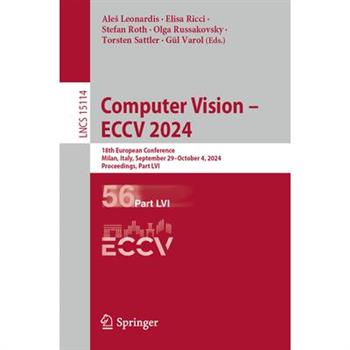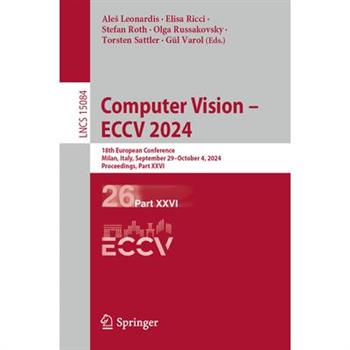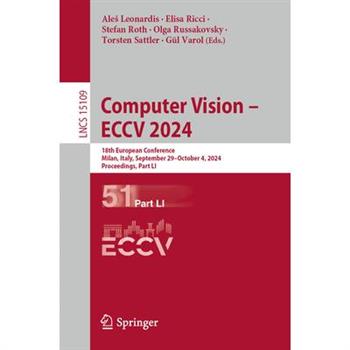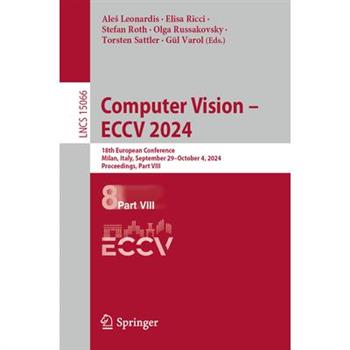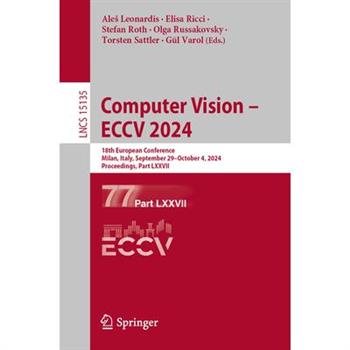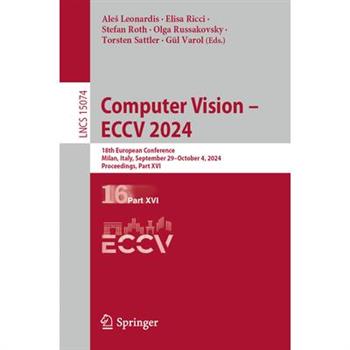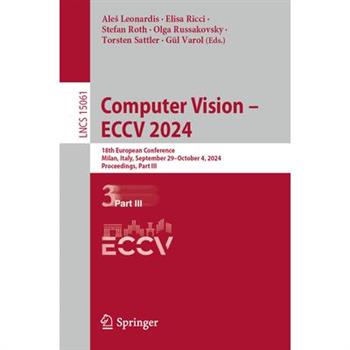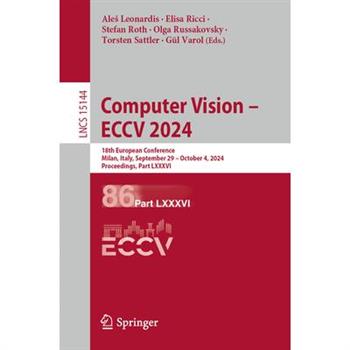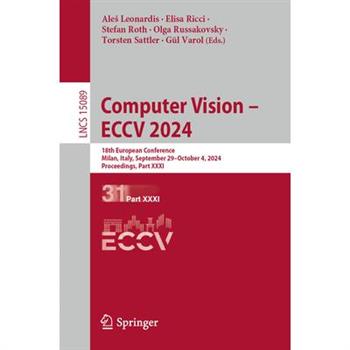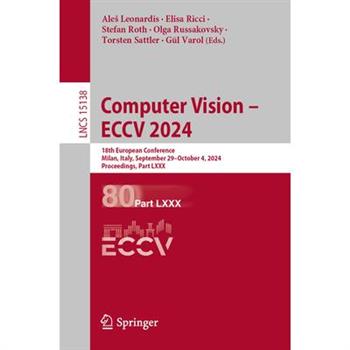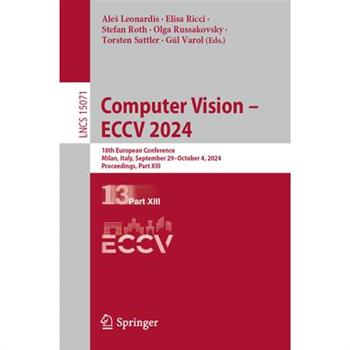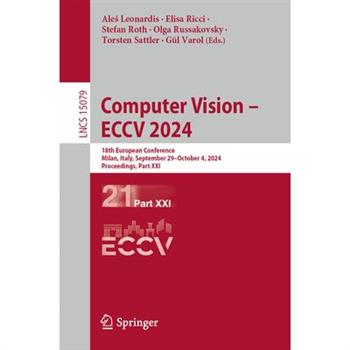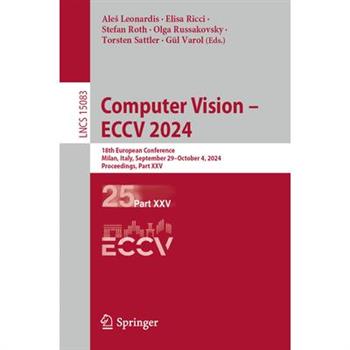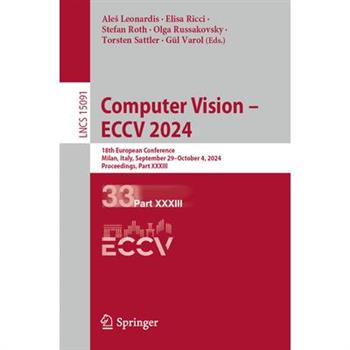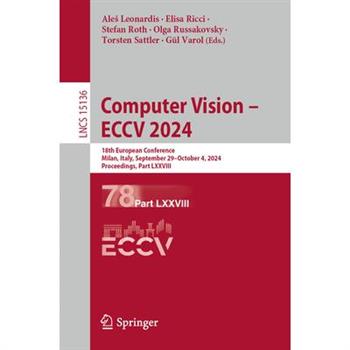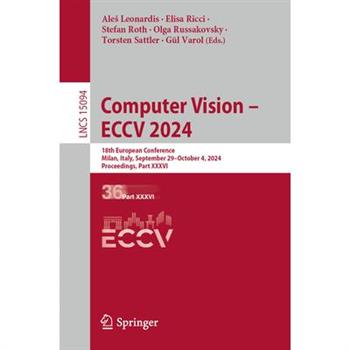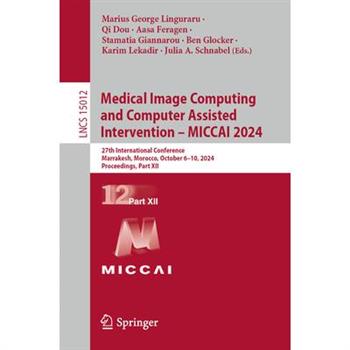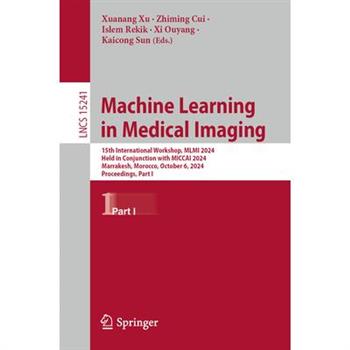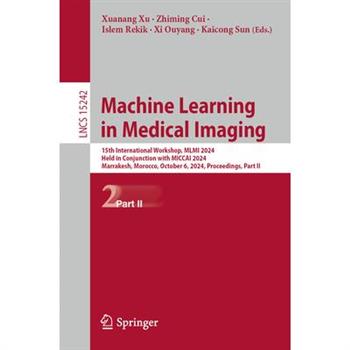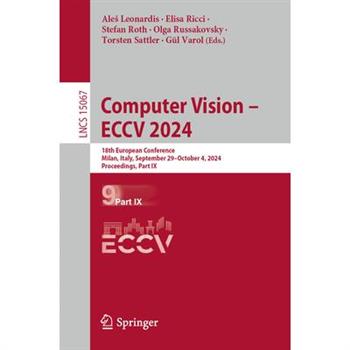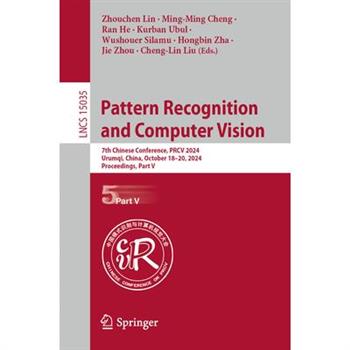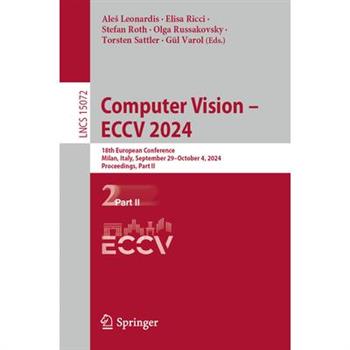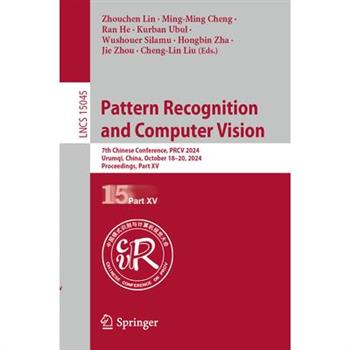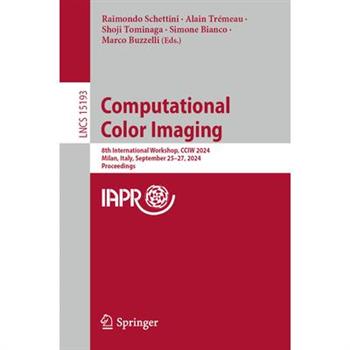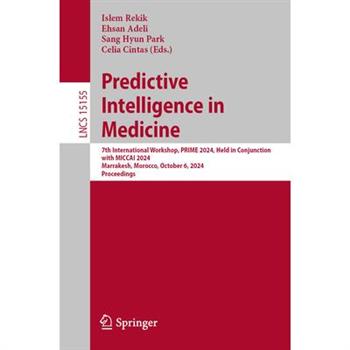Computer Vision - Eccv 2024
The multi-volume set of LNCS books with volume numbers 15059 up to 15147 constitutes the refereed proceedings of the 18th European Conference on Computer Vision, ECCV 2024, held in Milan, Italy, during September 29-October 4, 2024. The 2387 papers presented in these proceedings were carefully reviewed and selected from a total of 8585 submissions. They deal with topics such as computer vision; machine learning; deep neural networks; reinforcement learning; object recognition; image classification; image processing; object detection; semantic segmentation; human pose estimation; 3d reconstruction; stereo vision; computational photography; neural networks; image coding; image reconstruction; motion estimation.
CISA - Certified Information Systems Auditor Study Guide - Third Edition
Gain practical information systems auditing expertise to pass the latest CISA exam on your first attempt and advance your careerPurchase of the book unlocks access to web-based exam prep resources, including over 1000 practice test questions, flashcards, exam tips, and a free eBook PDFKey Features: - Learn from a qualified CISA and bestselling instructor, Hemang Doshi- Aligned with the latest CISA exam objectives from the 28th edition of the Official Review Manual- Assess your exam readiness with over 1000 targeted practice test questionsBook Description: Following on from the success of its bestselling predecessor, this third edition of the CISA - Certified Information Systems Auditor Study Guide serves as your go-to resource for acing the CISA exam. Written by renowned CISA expert Hemang Doshi, this guide equips you with practical skills and in-depth knowledge to excel in information systems auditing, setting the foundation for a thriving career.Fully updated to align with the 28th edition of the CISA Official Review Manual, this guide covers the latest exam objectives and provides a deep dive into essential IT auditing areas, including IT governance, systems development, and asset protection. The book follows a structured, three-step approach to solidify your understanding. First, it breaks down the fundamentals with clear, concise explanations. Then, it highlights critical exam-focused points to ensure you concentrate on key areas. Finally, it challenges you with self-assessment questions that reflect the exam format, helping you assess your knowledge.Additionally, you'll gain access to online resources, including mock exams, interactive flashcards, and invaluable exam tips, ensuring you're fully prepared for the exam with unlimited practice opportunities.By the end of this guide, you'll be ready to pass the CISA exam with confidence and advance your career in auditing.What You Will Learn: - Conduct audits that adhere to globally accepted standards and frameworks- Identify and propose IT processes and control enhancements- Use data analytics tools to optimize audit effectiveness- Evaluate the efficiency of IT governance and management- Examine and implement various IT frameworks and standard- Manage effective audit reporting and communication- Assess evidence collection methods and forensic techniquesWho this book is for: This CISA study guide is for anyone with a non-technical background aspiring to achieve the CISA certification. It caters to those currently working in or seeking employment in IT audit and security management roles.Table of Contents- Audit Planning- Audit Execution- IT Governance- IT Management- Information Systems Acquisition and Development- Information Systems Implementation- Information System Operations- Business Resilience- Information Asset Security and Control- Network Security and Control- Public Key Cryptography and Other Emerging Technologies- Security Event Management
Machine Learning Evaluation
As machine learning applications gain widespread adoption and integration in a variety of applications, including safety and mission-critical systems, the need for robust evaluation methods grows more urgent. This book compiles scattered information on the topic from research papers and blogs to provide a centralized resource that is accessible to students, practitioners, and researchers across the sciences. The book examines meaningful metrics for diverse types of learning paradigms and applications, unbiased estimation methods, rigorous statistical analysis, fair training sets, and meaningful explainability, all of which are essential to building robust and reliable machine learning products. In addition to standard classification, the book discusses unsupervised learning, regression, image segmentation, and anomaly detection. The book also covers topics such as industry-strength evaluation, fairness, and responsible AI. Implementations using Python and scikit-learn are available on the book's website.
Microsoft Cybersecurity Architect Exam Ref SC-100 - Second Edition
Unlock your potential to pass the SC-100 exam by mastering advanced cloud security strategies, designing zero-trust architectures, and evaluating cybersecurity frameworks with this latest exam guidePurchase of this book unlocks access to web-based exam prep resources such as mock exams, flashcards, exam tips, the eBook PDFKey Features: - Gain a deep understanding of all topics covered in the latest SC-100 exam- Advance your knowledge of architecting and evaluating cybersecurity services to tackle day-to-day challenges- Get certified with ease through mock tests with exam-level difficulty- Benefit from practical examples that will help you put your new knowledge to workBook Description: This Second Edition of Microsoft Cybersecurity Architect Exam Ref SC-100 is a comprehensive guide that will help cybersecurity professionals design and evaluate the cybersecurity architecture of Microsoft cloud services. Packed with practice questions, mock exams, interactive flashcards, and invaluable exam tips, this comprehensive resource gives you everything you need to conquer the SC-100 exam with confidence.This book will take you through designing a strategy for a cybersecurity architecture and evaluating the governance, risk, and compliance (GRC) of the architecture of both cloud-only and hybrid infrastructures. You'll discover how to implement zero trust principles, enhance security operations, and elevate your organization's security posture.By the end of this book, you'll be fully equipped to plan, design, and assess cybersecurity frameworks for Microsoft cloud environments-and pass the SC-100 exam with flying colors. Ready to take your cybersecurity expertise to the next level? This guide is your key to success.What You Will Learn: - Design a zero-trust strategy and architecture- Evaluate GRC technical and security operation strategies- Apply encryption standards for data protection- Utilize Microsoft Defender tools to assess and enhance security posture- Translate business goals into actionable security requirements- Assess and mitigate security risks using industry benchmarks and threat intelligence- Optimize security operations using SIEM and SOAR technologies- Securely manage secrets, keys, and certificates in cloud environmentsWho this book is for: This book targets is for IT professionals pursuing the Microsoft Cybersecurity Architect Expert SC-100 certification. Familiarity with the principles of administering core features and services within Microsoft Azure, Microsoft 365 and on-premises related technologies (server, active directory, networks) are needed. Prior knowledge of integration of these technologies with each other will also be beneficial.Table of Contents- Cybersecurity in the Cloud- Build an Overall Security Strategy and Architecture- Design a Security Operations Strategy- Design an Identity Security Strategy- Design a Regulatory Compliance Strategy- Evaluate Security Posture and Recommend Technical Strategies to Manage Risk- Design a Strategy for Securing Server and Client Endpoints- Design a Strategy for Securing SaaS, PaaS, and IaaS- Specify Security Requirements for Applications- Design a Strategy for Securing Data
Computer Vision - Eccv 2024
The multi-volume set of LNCS books with volume numbers 15059 up to 15147 constitutes the refereed proceedings of the 18th European Conference on Computer Vision, ECCV 2024, held in Milan, Italy, during September 29-October 4, 2024. The 2387 papers presented in these proceedings were carefully reviewed and selected from a total of 8585 submissions. They deal with topics such as computer vision; machine learning; deep neural networks; reinforcement learning; object recognition; image classification; image processing; object detection; semantic segmentation; human pose estimation; 3d reconstruction; stereo vision; computational photography; neural networks; image coding; image reconstruction; motion estimation.
Starting Data Analytics with Generative AI and Python
Accelerate your mastery of data analytics with the power of ChatGPT. Whether you're a data novice or an experienced pro looking to do more work, faster, Starting Data Analytics with Generative AI and Python is here to help simplify and speed up your data analysis! Written by a pair of world-class data scientists and an experienced risk manager, the book concentrates on the practical analytics tasks you'll do every day. Inside Starting Data Analytics with Generative AI and Python you'll learn how to: - Write great prompts for ChatGPT - Perform end-to-end descriptive analytics - Set up an AI-friendly data analytics environment - Evaluate the quality of your data - Develop a strategic analysis plan - Generate code to analyze non-text data - Explore text data directly with ChatGPT - Prepare reliable reports In Starting Data Analytics with Generative AI and Python you'll learn how to improve your coding efficiency, generate new analytical approaches, and fine-tune data pipelines--all assisted by AI tools like ChatGPT. For each step in the data process, you'll discover how ChatGPT can implement data techniques from simple plain-English prompts. Plus, you'll develop a vital intuition about the risks and errors that still come with these tools. Purchase of the print book includes a free eBook in PDF and ePub formats from Manning Publications. About the technology If you have basic knowledge of data analysis, this book will show you how to use ChatGPT to accelerate your essential data analytics work. This speed-up can be amazing: the authors report needing one third or even one quarter the time they needed before. About the book You'll find reliable and practical advice that works on the job. Improve problem exploration, generate new analytical approaches, and fine-tune your data pipelines--all while developing an intuition about the risks and errors that still come with AI tools. In the end, you'll be able to do significantly more work, do it faster, and get better results, without breaking a sweat. Assuming only that you know the foundations, this friendly book guides you through the entire analysis process--from gathering and preparing raw data, data cleaning, generating code-based solutions, selecting statistical tools, and finally creating effective data presentations. With clearly-explained prompts to extract, interpret, and present data, it will raise your skills to a whole different level. What's inside - Write great prompts for ChatGPT - Perform end-to-end descriptive analytics - Set up an AI-friendly data analytics environment - Evaluate the quality of your data - Develop a strategic analysis plan - Generate code to analyze non-text data - Explore text data directly with ChatGPT - Prepare reliable reports About the author Authors Artur Guja, Dr. Marlena Siwiak, and Dr. Marian Siwiak are experienced data scientists with backgrounds in business, scientific research, and finance. The technical editor on this book was Mike Jensen. Table of Contents 1 Introduction to the use of generative AI in data analytics 2 Using generative AI to ensure sufficient data quality 3 Descriptive analysis and statistical inference supported by generative AI 4 Using generative AI for result interpretations 5 Basic text mining using generative AI 6 Advanced text mining with generative AI 7 Scaling and performance optimization 8 Risk, mitigation, and tradeoffs Appendix A Specifying multiple DataFrames to ChatGPT v4 Appendix B On debugging ChatGPT's code Appendix C On laziness and human errors
Computer Vision - Eccv 2024
The multi-volume set of LNCS books with volume numbers 15059 up to 15147 constitutes the refereed proceedings of the 18th European Conference on Computer Vision, ECCV 2024, held in Milan, Italy, during September 29-October 4, 2024. The 2387 papers presented in these proceedings were carefully reviewed and selected from a total of 8585 submissions. The papers deal with topics such as computer vision; machine learning; deep neural networks; reinforcement learning; object recognition; image classification; image processing; object detection; semantic segmentation; human pose estimation; 3d reconstruction; stereo vision; computational photography; neural networks; image coding; image reconstruction; motion estimation.
Computer Vision - Eccv 2024
The multi-volume set of LNCS books with volume numbers 15059 up to 15147 constitutes the refereed proceedings of the 18th European Conference on Computer Vision, ECCV 2024, held in Milan, Italy, during September 29-October 4, 2024. The 2387 papers presented in these proceedings were carefully reviewed and selected from a total of 8585 submissions. The papers deal with topics such as computer vision; machine learning; deep neural networks; reinforcement learning; object recognition; image classification; image processing; object detection; semantic segmentation; human pose estimation; 3d reconstruction; stereo vision; computational photography; neural networks; image coding; image reconstruction; motion estimation.
World Conference of AI-Powered Innovation and Inventive Design
This book constitutes the proceedings of the 24th IFIP WG 5.4 International TRIZ Future Conference on AI-Powered Innovation and Inventive Design, TFC 2024, held in Cluj-Napoca, Romania, during November 6-8, 2024. The 42 full papers presented were carefully reviewed and selected from 72 submissions. They were organized in the following topical sections: Part I - AI-Driven TRIZ and Innovation Part II - Sustainable and Industrial Design with TRIZ; Digital Transformation, Industry 4.0, and Predictive Analytics; Interdisciplinary and Cognitive Approaches in TRIZ; Customer Experience and Service Innovation with TRIZ.
Computer Vision - Eccv 2024
The multi-volume set of LNCS books with volume numbers 15059 up to 15147 constitutes the refereed proceedings of the 18th European Conference on Computer Vision, ECCV 2024, held in Milan, Italy, during September 29-October 4, 2024. The 2387 papers presented in these proceedings were carefully reviewed and selected from a total of 8585 submissions. They deal with topics such as computer vision; machine learning; deep neural networks; reinforcement learning; object recognition; image classification; image processing; object detection; semantic segmentation; human pose estimation; 3d reconstruction; stereo vision; computational photography; neural networks; image coding; image reconstruction; motion estimation.
Computer Vision - Eccv 2024
The multi-volume set of LNCS books with volume numbers 15059 up to 15147 constitutes the refereed proceedings of the 18th European Conference on Computer Vision, ECCV 2024, held in Milan, Italy, during September 29-October 4, 2024. The 2387 papers presented in these proceedings were carefully reviewed and selected from a total of 8585 submissions. The papers deal with topics such as computer vision; machine learning; deep neural networks; reinforcement learning; object recognition; image classification; image processing; object detection; semantic segmentation; human pose estimation; 3d reconstruction; stereo vision; computational photography; neural networks; image coding; image reconstruction; motion estimation.
Computer Vision - Eccv 2024
The multi-volume set of LNCS books with volume numbers 15059 up to 15147 constitutes the refereed proceedings of the 18th European Conference on Computer Vision, ECCV 2024, held in Milan, Italy, during September 29-October 4, 2024. The 2387 papers presented in these proceedings were carefully reviewed and selected from a total of 8585 submissions. They deal with topics such as computer vision; machine learning; deep neural networks; reinforcement learning; object recognition; image classification; image processing; object detection; semantic segmentation; human pose estimation; 3d reconstruction; stereo vision; computational photography; neural networks; image coding; image reconstruction; motion estimation.
The Art of Thinking in a Digital World
Luc de Brabandere has had three careers in his fifty years of professional life. He started out as a computer engineer, before becoming a consultant in creativity, and today he is a corporate philosopher. This journey has led him to investigate successively the three modes of thinking that are permanently articulated within us: logical thinking, creative thinking and critical thinking. As a talented popularizer, he puts forward an ambitious yet accessible summary of the main principles that govern these three modes of thinking. The book is richly illustrated and places thinking in an historical perspective that allows us to better understand how informational technology in general, and ChatGPT and other artificial intelligences in particular, are influencing our mental models. In the first part of this book, thinking is presented as a game whose rules need to be understood in order to be able to play the game better. A machine can't be creative or responsible. So the more machines there are, the more thinking we'll need to do!
A Context Aware Decision-Making Algorithm for Human-Centric Analytics
This reference demonstrates the development of a context aware decision-making health informatics system with the objective to automate the analysis of human centric wellness and assist medical decision-making in healthcare. The book introduces readers to the basics of a clinical decision support system. This is followed by chapters that explain how to analyze healthcare data for anomaly detection and clinical correlations. The next two sections cover machine learning techniques for object detection and a case study for hemorrhage detection. These sections aim to expand the understanding of simple and advanced neural networks in health informatics. The authors also explore how machine learning model choices based on context can assist medical professionals in different scenarios. Key Features -Reader-friendly format with clear headings, introductions and summaries in each chapter. -Detailed references for readers who want to conduct further research. -Expert contributors providing authoritative knowledge on machine learning techniques and human-centric wellness. -Practical applications of data science in healthcare designed to solve problems and enhance patient wellbeing. -Deep learning use cases for different medical conditions including hemorrhages, gallbladder stones and diabetic retinopathy. -Demonstrations of fast and efficient CNN models with varying parameters such as Single shot detector, R-CNN, Mask R-CNN, modified contrast enhancement and improved LSTM models. This reference is intended as a primary resource for professionals, researchers, software developers and technicians working in healthcare informatics systems and medical diagnostics. It also serves as a supplementary resource for learners in bioinformatics, biomedical engineering and medical informatics programs and anyone who requires technical knowledge about algorithms in medical decision support systems.
Log-Linear Models, Extensions, and Applications
Advances in training models with log-linear structures, with topics including variable selection, the geometry of neural nets, and applications. Log-linear models play a key role in modern big data and machine learning applications. From simple binary classification models through partition functions, conditional random fields, and neural nets, log-linear structure is closely related to performance in certain applications and influences fitting techniques used to train models. This volume covers recent advances in training models with log-linear structures, covering the underlying geometry, optimization techniques, and multiple applications. The first chapter shows readers the inner workings of machine learning, providing insights into the geometry of log-linear and neural net models. The other chapters range from introductory material to optimization techniques to involved use cases. The book, which grew out of a NIPS workshop, is suitable for graduate students doing research in machine learning, in particular deep learning, variable selection, and applications to speech recognition. The contributors come from academia and industry, allowing readers to view the field from both perspectives. ContributorsAleksandr Aravkin, Avishy Carmi, Guillermo A. Cecchi, Anna Choromanska, Li Deng, Xinwei Deng, Jean Honorio, Tony Jebara, Huijing Jiang, Dimitri Kanevsky, Brian Kingsbury, Fabrice Lambert, Aur矇lie C. Lozano, Daniel Moskovich, Yuriy S. Polyakov, Bhuvana Ramabhadran, Irina Rish, Dimitris Samaras, Tara N. Sainath, Hagen Soltau, Serge F. Timashev, Ewout van den Berg
Compiler Design Using Kotlin(TM)
This book is designed primarily for use as a textbook in a one-semester course on compiler design for undergraduate students and beginning graduate students. The only prerequisites for this book are familiarity with basic algorithms and data structures (lists, maps, recursion, etc.), a rudimentary knowledge of computer architecture and assembly language, and some experience with the Kotlin programming language or a closely related language such as Java.A complete study of compilers could easily fill several graduate-level courses, and therefore some simplifications and compromises are necessary for a one-semester course that is accessible to undergraduate students. Following are some of the decisions made in order to accommodate the goals of this book.1. The book has a narrow focus as a project-oriented course on compilers. Compiler theory is kept to a minimum, but the project orientation retains the "fun" part of studying compilers. 2. The source language being compiled is relatively simple, but it is powerful enough to be interesting and challenging. It has basic data types, arrays, procedures, functions, and parameters, but it relegates many other interesting language features to the project exercises.3. The target language is assembly language for a virtual machine with a stack-based architecture, similar to but much simpler than the Java Virtual Machine (JVM). This approach greatly simplifies code generation. Both an assembler and an emulator for the virtual machine are provided on the course web site.4. No special compiler-related tools are required or used within the book. Students require access only to a Kotlin compiler and a text editor, but most students will want to use Kotlin with an Integrated Development Environment (IDE).5. One very important component of a compiler is the parser, which verifies that a source program conforms to the language syntax and produces an intermediate representation of the program that is suitable for additional analysis and code generation. There are several different approaches to parsing, but in keeping with the focus on a one-semester course, this book emphasizes only one approach, recursive descent parsing with several lookahead tokens.
Governing AI in Australia
Artificial Intelligence (AI) is transforming Australia's technology, business, and public service, offering immense potential benefits to both society and the economy. However, the swift advance and widespread adoption of AI also bring significant challenges and risks that must be carefully managed. This eBook is a handy guide to the current state of AI governance in Australia and what you need to be mindful of as you make decisions to invest in AI in your organisation.Key findings and recommendations: Australia has established a strong foundation for AI governance through the AI Ethics Principles, the Voluntary AI Safety Standard, and the Policy for the Responsible Use of AI in Government. These provide a solid starting point for ethical and responsible AI practices.A multi-stakeholder approach is crucial for effective AI governance. This paper outlines specific roles for government, industry, academia, and civil society, emphasising the need for collaboration and coordination among these sectors.Implementing AI governance requires concrete steps, including robust risk assessment protocols, ongoing auditing and monitoring mechanisms, workforce training and capacity building, and public engagement initiatives.Case studies from healthcare, financial services, and public services demonstrate that effective AI governance is achievable and can lead to significant benefits when implemented thoughtfully.As AI technology evolves rapidly, governance frameworks must be adaptive and future-focused. Strategies for future-proofing AI governance include developing adaptive regulatory frameworks, maintaining continuous stakeholder engagement, and fostering international collaboration.Balancing innovation with precaution is a key challenge. This paper recommends tiered governance approaches, outcome-based regulation, and incentives for responsible innovation.While the challenges of AI governance are significant, Australia is well-positioned to become a global leader in responsible AI development and use. By continuing to refine and implement effective governance strategies, Australia can harness the transformative potential of AI while safeguarding its ethical principles and societal values.
Computer Vision - Eccv 2024
The multi-volume set of LNCS books with volume numbers 15059 up to 15147 constitutes the refereed proceedings of the 18th European Conference on Computer Vision, ECCV 2024, held in Milan, Italy, during September 29-October 4, 2024. The 2387 papers presented in these proceedings were carefully reviewed and selected from a total of 8585 submissions. They deal with topics such as computer vision; machine learning; deep neural networks; reinforcement learning; object recognition; image classification; image processing; object detection; semantic segmentation; human pose estimation; 3d reconstruction; stereo vision; computational photography; neural networks; image coding; image reconstruction; motion estimation.
Computer Vision - Eccv 2024
The multi-volume set of LNCS books with volume numbers 15059 up to 15147 constitutes the refereed proceedings of the 18th European Conference on Computer Vision, ECCV 2024, held in Milan, Italy, during September 29-October 4, 2024. The 2387 papers presented in these proceedings were carefully reviewed and selected from a total of 8585 submissions. They deal with topics such as computer vision; machine learning; deep neural networks; reinforcement learning; object recognition; image classification; image processing; object detection; semantic segmentation; human pose estimation; 3d reconstruction; stereo vision; computational photography; neural networks; image coding; image reconstruction; motion estimation.
Computer Vision - Eccv 2024
The multi-volume set of LNCS books with volume numbers 15059 up to 15147 constitutes the refereed proceedings of the 18th European Conference on Computer Vision, ECCV 2024, held in Milan, Italy, during September 29-October 4, 2024. The 2387 papers presented in these proceedings were carefully reviewed and selected from a total of 8585 submissions. They deal with topics such as computer vision; machine learning; deep neural networks; reinforcement learning; object recognition; image classification; image processing; object detection; semantic segmentation; human pose estimation; 3d reconstruction; stereo vision; computational photography; neural networks; image coding; image reconstruction; motion estimation.
Computer Vision - Eccv 2024
The multi-volume set of LNCS books with volume numbers 15059 up to 15147 constitutes the refereed proceedings of the 18th European Conference on Computer Vision, ECCV 2024, held in Milan, Italy, during September 29-October 4, 2024. The 2387 papers presented in these proceedings were carefully reviewed and selected from a total of 8585 submissions. The papers deal with topics such as computer vision; machine learning; deep neural networks; reinforcement learning; object recognition; image classification; image processing; object detection; semantic segmentation; human pose estimation; 3d reconstruction; stereo vision; computational photography; neural networks; image coding; image reconstruction; motion estimation.
Computer Vision - Eccv 2024
The multi-volume set of LNCS books with volume numbers 15059 up to 15147 constitutes the refereed proceedings of the 18th European Conference on Computer Vision, ECCV 2024, held in Milan, Italy, during September 29-October 4, 2024. The 2387 papers presented in these proceedings were carefully reviewed and selected from a total of 8585 submissions. The papers deal with topics such as computer vision; machine learning; deep neural networks; reinforcement learning; object recognition; image classification; image processing; object detection; semantic segmentation; human pose estimation; 3d reconstruction; stereo vision; computational photography; neural networks; image coding; image reconstruction; object recognition; motion estimation.
Shape in Medical Imaging
This book constitutes the proceedings of the International Workshop on Shape in Medical Imaging, ShapeMI 2024, which took place in Marrakesh, Morocco, on October 6, 2024, held in conjunction with MICCAI 2024. The 16 full papers included in this book were carefully reviewed and selected from 24 submissions. They focus on shape and spectral analysis, geometric learning and modeling algorithms, and application-driven research.
Computer Vision - Eccv 2024
The multi-volume set of LNCS books with volume numbers 15059 up to 15147 constitutes the refereed proceedings of the 18th European Conference on Computer Vision, ECCV 2024, held in Milan, Italy, during September 29-October 4, 2024. The 2387 papers presented in these proceedings were carefully reviewed and selected from a total of 8585 submissions. They deal with topics such as computer vision; machine learning; deep neural networks; reinforcement learning; object recognition; image classification; image processing; object detection; semantic segmentation; human pose estimation; 3d reconstruction; stereo vision; computational photography; neural networks; image coding; image reconstruction; object recognition; motion estimation.
Engineering Multi-Agent Systems
This book constitutes the revised selected papers from the 12th International Workshop on Engineering Multi-Agent Systems, EMAS 2024, held in Auckland, New Zealand, during May 6-7, 2024. The 7 full papers and 4 short papers included in this book were carefully reviewed and selected from a total of 18 submissions. These papers focus on topics such as agent-oriented software engineering, programming multi-agent systems, declarative agent languages and technologies, artificial intelligence, and machine learning.
Computer Vision - Eccv 2024
The multi-volume set of LNCS books with volume numbers 15059 up to 15147 constitutes the refereed proceedings of the 18th European Conference on Computer Vision, ECCV 2024, held in Milan, Italy, during September 29-October 4, 2024. The 2387 papers presented in these proceedings were carefully reviewed and selected from a total of 8585 submissions. They deal with topics such as computer vision; machine learning; deep neural networks; reinforcement learning; object recognition; image classification; image processing; object detection; semantic segmentation; human pose estimation; 3d reconstruction; stereo vision; computational photography; neural networks; image coding; image reconstruction; motion estimation.
Compiler Design Using Java(R)
This book is designed primarily for use as a textbook in a one-semester course on compiler design for undergraduate students and beginning graduate students. The only prerequisites for this book are familiarity with basic algorithms and data structures (lists, maps, recursion, etc.), a rudimentary knowledge of computer architecture and assembly language, and some experience with the Java programming language.A complete study of compilers could easily fill several graduate-level courses, and therefore some simplifications and compromises are necessary for a one-semester course that is accessible to undergraduate students. Following are some of the decisions made in order to accommodate the goals of this book.The book has a narrow focus as a project-oriented course on compilers. Compiler theory is kept to a minimum, but the project orientation retains the "fun" part of studying compilers.The source language being compiled is relatively simple, but it is powerful enough to be interesting and challenging. It has basic data types, arrays, procedures, functions, and parameters, but it relegates many other interesting language features to the project exercises.The target language is assembly language for a virtual machine with a stack-based architecture, similar to but much simpler than the Java Virtual Machine (JVM). This approach greatly simplifies code generation. Both an assembler and an emulator for the virtual machine are provided on the course web site.No special compiler-related tools are required or used within the book. Students require access only to a Java compiler and a text editor, but most students will want to use Java with an Integrated Development Environment (IDE).One very important component of a compiler is the parser, which verifies that a source program conforms to the language syntax and produces an intermediate representation of the program that is suitable for additional analysis and code generation. There are several different approaches to parsing, but in keeping with the focus on a one-semester course, this book emphasizes only one approach, recursive descent parsing with several lookahead tokens.
Cyberlibertarianism
An urgent reckoning with digital technology's fundamentally right-wing legal and economic underpinnings In a timely challenge to the potent political role of digital technology, Cyberlibertarianism argues that right-wing ideology was built into both the technical and social construction of the digital world from the start. Leveraging more than a decade of research, David Golumbia traces how digital evangelism has driven the worldwide shift toward the political right, concealing inequality, xenophobia, dishonesty, and massive corporate concentrations of wealth and power beneath the utopian presumption of digital technology as an inherent social good. Providing an incisive critique of the push for open access and open-source software and the legal battles over online censorship and net neutrality, Cyberlibertarianism details how the purportedly democratic internet has been employed as an organizing tool for terror and hate groups and political disinformation campaigns. As he unpacks our naively utopian conception of the digital world, Golumbia highlights technology's role in the advancement of hyperindividualist and antigovernment agendas, demonstrating how Silicon Valley corporations and right-wing economists; antiestablishment figures such as Julian Assange, Elon Musk, Peter Thiel, Edward Snowden, and Mark Zuckerberg; and seemingly positive voices such as John Perry Barlow, Cory Doctorow, the Electronic Freedom Foundation, and Wikipedia all have worked to hamper regulation and weaken legal safeguards against exploitation. Drawing from a wide range of thought in digital theory, economics, law, and political philosophy as well as detailed research and Golumbia's own experience as a software developer, Cyberlibertarianism serves as a clarion call to reevaluate the fraught politics of the internet. In the hope of providing a way of working toward a more genuinely democratic and egalitarian future for digital technology, this magisterial work insists that we must first understand the veiled dogmas from which it has been constructed. Retail e-book files for this title are screen-reader friendly.
Computer Vision - Eccv 2024
The multi-volume set of LNCS books with volume numbers 15059 up to 15147 constitutes the refereed proceedings of the 18th European Conference on Computer Vision, ECCV 2024, held in Milan, Italy, during September 29-October 4, 2024. The 2387 papers presented in these proceedings were carefully reviewed and selected from a total of 8585 submissions. They deal with topics such as computer vision; machine learning; deep neural networks; reinforcement learning; object recognition; image classification; image processing; object detection; semantic segmentation; human pose estimation; 3d reconstruction; stereo vision; computational photography; neural networks; image coding; image reconstruction; motion estimation.
Computer Vision - Eccv 2024
The multi-volume set of LNCS books with volume numbers 15059 up to 15147 constitutes the refereed proceedings of the 18th European Conference on Computer Vision, ECCV 2024, held in Milan, Italy, during September 29-October 4, 2024. The 2387 papers presented in these proceedings were carefully reviewed and selected from a total of 8585 submissions. They deal with topics such as computer vision; machine learning; deep neural networks; reinforcement learning; object recognition; image classification; image processing; object detection; semantic segmentation; human pose estimation; 3d reconstruction; stereo vision; computational photography; neural networks; image coding; image reconstruction; object recognition; motion estimation.
AI for Brain Lesion Detection and Trauma Video Action Recognition
This book constitutes the proceedings of the First BONBID-HIE Lesion Segmentation Challenge and the First Trauma Thompson Challenge, held in conjunction with MICCAI 2023, in Vancouver, BC, Canada, during October 2023. For BONBID-HIE 2023 Challenge 6 papers have been accepted out of 14 submissions. They span a broad array of approaches leveraging anatomical information about HIE, data augmentation, training strategies, model architecture, and integration with traditional machine learning methods. For the TTC 2023 Trauma Thompson Challenge 4 accepted contributions are included in this book. They deal with advancements in machine learning methods and their practical applications in addressing small and diffuse lesions in HIE segmentation.
Medical Image Computing and Computer Assisted Intervention - Miccai 2024
The 12-volume set LNCS 15001 - 15012 constitutes the proceedings of the 27th International Conferenc on Medical Image Computing and Computer Assisted Intervention, MICCAI 2024, which took place in Marrakesh, Morocco, during October 6-10, 2024. MICCAI accepted 857 full papers from 2781 submissions. They focus on neuroimaging; image registration; computational pathology; computer aided diagnosis, treatment response, and outcome prediction; image guided intervention; visualization; surgical planning, and surgical data science; image reconstruction; image segmentation; machine learning; etc.
Machine Learning in Medical Imaging
This book constitutes the proceedings of the 15th International Workshop on Machine Learning in Medical Imaging, MLMI 2023, held in conjunction with MICCAI 2024, Marrakesh, Morocco, on October 6, 2024. The 63 full papers presented in this volume were carefully reviewed and selected from 100 submissions. They focus on major trends and challenges in the above-mentioned area, aiming to identify new-cutting-edge techniques and their uses in medical imaging using artificial intelligence (AI) and machine learning (ML).
Machine Learning in Medical Imaging
This book constitutes the proceedings of the 15th International Workshop on Machine Learning in Medical Imaging, MLMI 2024, held in conjunction with MICCAI 2024, Marrakesh, Morocco, on October 6, 2024. The 63 full papers presented in this volume were carefully reviewed and selected from 100 submissions. They focus on major trends and challenges in the above-mentioned area, aiming to identify new-cutting-edge techniques and their uses in medical imaging using artificial intelligence (AI) and machine learning (ML).
Digital Reflections
Are you ready to explore the future? Digital Reflections: Poems on the Rise of AI invites you on a thought-provoking journey through the captivating intersection of humanity and technology.In this evocative collection, B.B. Inkwell weaves together vivid imagery and profound insights that reflect on the beauty, challenges, and potential futures shaped by artificial intelligence. Each poem encourages you to confront the complexities of our digital age while capturing the essence of nature and human emotion.As you navigate these verses and consider the diverse paths that lie ahead-what will you discover?
The No-Brainers
"The most relatable book about AI""Storytelling at its finest!"AI is here to stay, and is increasingly shaping the daily decisions that make us who we are. In this relatable, fast-paced, frequently hilarious dissection of the AI hype, Jacob Eliza shows you how we got here and how we can use AI to discover unexpected formulas for a better life. In a world where artificial intelligence is everywhere-helping us choose our music, find a restaurant, and even navigate our dating lives-The No-Brainers is the book you didn't know you needed. Written for anyone who's ever felt like technology is racing ahead faster than we can keep up, this book takes a step back to make sense of it all.Jacob Eliza is your friendly guide on this journey through the world of algorithms, AI, and the everyday decisions they shape. But don't expect a tech manual or dry academic lecture. With humor, relatable stories, and a touch of nostalgia, Jacob brings the topic to life. Remember the 90s? Jacob does-he was a young entrepreneur back when the internet was just starting to take over the world, and his experiences give this book a unique perspective that blends pop culture, technology, and human behavior.This is not your typical tech book. The No-Brainers is for people who don't consider themselves tech experts but still want to understand how AI is changing the way we live. Through fun anecdotes-whether it's deciding what to eat for dinner or how we find romance in a world of dating apps-Jacob cuts through the hype and shows how AI is deeply embedded in our daily lives. He offers a fresh, optimistic perspective, even as he explores the concerns that come with giving so much power to algorithms.By the end of this book, you'll have a better understanding of how to navigate AI's growing influence, but more importantly, you'll come away with practical tips on how to live your best life in the digital age. And, just in case you're short on time, every chapter ends with five simple takeaways that you can use as conversation starters or life hacks.Along the way, you'll get answers to many crucial questions: - How data, algorithms and AI really work - explained in such a way that even your uncle would understand it- How ChatGPT is fundamentally changing writing and thinking - one hallucination at a time- How Spotify and Netflix are like creepy best friends that we both love and hate- How Tinder and other dating apps will not match you up with your dream partner, no matter what they claim- What real-life formulas work for carefree weekends, perfect weddings and glorious date nights- What four survival skills everybody needs in the age of AIJacob Eliza (1974) is a 100% verified human with the ability to put 70,000 words in an attractive sequence. He is an AI veteran who lives in Amsterdam. This is his fourth book.
Computer Vision - Eccv 2024
The multi-volume set of LNCS books with volume numbers 15059 up to 15147 constitutes the refereed proceedings of the 18th European Conference on Computer Vision, ECCV 2024, held in Milan, Italy, during September 29-October 4, 2024. The 2387 papers presented in these proceedings were carefully reviewed and selected from a total of 8585 submissions. They deal with topics such as computer vision; machine learning; deep neural networks; reinforcement learning; object recognition; image classification; image processing; object detection; semantic segmentation; human pose estimation; 3d reconstruction; stereo vision; computational photography; neural networks; image coding; image reconstruction; motion estimation.
Artificial Intelligence in Pathological Image Analysis
In routine pathological diagnosis, histopathological and cytopathological examination of specimens is conventionally performed under light microscopy. Whole slide images (WSIs) are the digitized counterparts of conventional glass slides obtained via specialized scanning devices. In recent years, the introduction of digital pathology into clinical workflows such as intraoperative consultations and secondary consultations is increasing steadily. The advent of WSIs has led to the application of medical image analysis, machine learning, and deep learning approaches for aiding pathologists in inspecting WSIs and routine diagnosis. Deep learning in particular has found a wide array of applications (e.g., classification, segmentation, and patient outcome predictions) in computational pathology. In a time of distinct paradigm shifts and novel technological innovations, it is necessary for us to establish a unified comprehension(s) of artificial intelligence (AI) approaches in experimental and clinical pathology. In this Special Issue entitled "Artificial Intelligence in Pathological Image Analysis", we collected a review and thirteen research articles in the areas of AI models in clinical and experimental pathology and computer vision in pathological image analysis. The published studies in this Special Issue provide great insights into the latest knowledge about the application of AI for pathological image analysis.
Empowering Digital Education with ChatGPT
Recently, there has been a significant increase in the development and interest in applying generative AI across various domains, including education. The emergence of large language models (LLMs), such as the ChatGPT tool, fueled by advancements in generative AI, is profoundly reshaping education. The use of the ChatGPT tool offers personalized support, improves accessibility, and introduces innovative methods for students and educators to engage with information and learning materials. Furthermore, ChatGPT facilitates a wide range of language learning services, including language instruction, speech recognition, pronunciation feedback, and immersive virtual simulations for hands-on learning experiences.This book explores the transformative potential of the ChatGPT tool within education, shedding light on the opportunities that arise through the integration of the ChatGPT tool into various aspects of the learning process. It serves as a platform for the community to share cutting-edge research ideas concerning the use of the ChatGPT tool in digital education. Readers will discover how the ChatGPT tool can enhance student engagement, foster personalized learning experiences, facilitate intelligent tutoring systems, support virtual classroom interactions, and revolutionize assessment and feedback mechanisms.
Pattern Recognition and Computer Vision
This 15-volume set LNCS 15031-15045 constitutes the refereed proceedings of the 7th Chinese Conference on Pattern Recognition and Computer Vision, PRCV 2024, held in Urumqi, China, during October 18-20, 2024. The 579 full papers presented were carefully reviewed and selected from 1526 submissions. The papers cover various topics in the broad areas of pattern recognition and computer vision, including machine learning, pattern classification and cluster analysis, neural network and deep learning, low-level vision and image processing, object detection and recognition, 3D vision and reconstruction, action recognition, video analysis and understanding, document analysis and recognition, biometrics, medical image analysis, and various applications.
Computer Vision - Eccv 2024
The multi-volume set of LNCS books with volume numbers 15059 up to 15147 constitutes the refereed proceedings of the 18th European Conference on Computer Vision, ECCV 2024, held in Milan, Italy, during September 29-October 4, 2024. The 2387 papers presented in these proceedings were carefully reviewed and selected from a total of 8585 submissions. They deal with topics such as computer vision; machine learning; deep neural networks; reinforcement learning; object recognition; image classification; image processing; object detection; semantic segmentation; human pose estimation; 3d reconstruction; stereo vision; computational photography; neural networks; image coding; image reconstruction; motion estimation.
Pattern Recognition and Computer Vision
This 15-volume set LNCS 15031-15045 constitutes the refereed proceedings of the 7th Chinese Conference on Pattern Recognition and Computer Vision, PRCV 2024, held in Urumqi, China, during October 18-20, 2024. The 579 full papers presented were carefully reviewed and selected from 1526 submissions. The papers cover various topics in the broad areas of pattern recognition and computer vision, including machine learning, pattern classification and cluster analysis, neural network and deep learning, low-level vision and image processing, object detection and recognition, 3D vision and reconstruction, action recognition, video analysis and understanding, document analysis and recognition, biometrics, medical image analysis, and various applications.
Computational Color Imaging
This book constitutes the refereed proceedings of the 8th International Workshop on Computational Color Imaging, CCIW 2024, held in Milan, Italy, in September 2024. The 18 full papers presented in this volume were carefully reviewed and selected from 21 submissions. In addition, the proceedings include 2 invited papers. They are grouped into the following topics: color theory and spaces; image enhancement and retinex theory; hyperspectral and spectral imaging; printing and machine learning applications; perceptual quality, medical imaging, and art applications; color constancy.
Predictive Intelligence in Medicine
This volume constitutes the refereed proceedings of the 7th International Workshop on Predictive Intelligence in Medicine, PRIME 2024, held in conjunction with the 27th International conference on Medical Image Computing and Computer Assisted Intervention, MICCAI 2024, in Marrakesh, Morocco in October 2024. The 17 full papers presented here were carefully reviewed and selected from 22 submissions. These papers focus on the current, cutting-edge Predictive models and methods with applications in the field of Medical data analysis, for early disease prediction and prevention.
Serious Games
This book constitutes the refereed proceedings of the 10th Joint International Conference on Serious Games, JCSG 2024, held in New York City, NY, USA, during November 7-8, 2024. The 19 full papers, 5 short papers, 12 posters and 5 demos included in this book were carefully reviewed and selected from 63 submissions. They were organized in topical sections as follows: Artificial intelligence in serious games; Serious games analytics; Serious game design; Impact studies; Extended realities; Healthcare and wellbeing; Applications.
Azure Cookbook
DESCRIPTION "Azure Cookbook" is a practical guide designed to help developers, system administrators, and cloud architects master Microsoft Azure through hands-on solutions. This book offers step-by-step recipes for tackling real-world challenges using Azure's vast range of services.This book covers many important topics related to Azure, such as storage, networking, virtual machines, containers, and application development. It offers practical tips and step-by-step instructions for creating and managing secure Azure applications. You will learn about various Azure services, including Azure Storage, Virtual Networks, App Service, and Azure Security Center. Whether you are new to Azure or have some experience, this guide will help you gain the skills needed to use Azure effectively for your cloud computing projects.With this book, you will not only enhance your Azure skills but also apply them directly to your job roles. By mastering the cloud, you will be equipped to design, deploy, and manage robust, scalable solutions-making you an invaluable asset in today's cloud-driven world.KEY FEATURES ● Step-by-step Azure recipes for real-world cloud solutions mastery.● Troubleshoot Azure issues with expert tips and hands-on guidance.● Boost skills with practical examples from core to advanced services.WHAT YOU WILL LEARN● Deploying and managing Azure Virtual Machines, Networks, and Storage solutions.● Automating cloud infrastructure using Bicep, ARM templates, and PowerShell.● Implementing secure, scalable, and cost-effective cloud architectures.● Building containerized apps with Azure Kubernetes Service (AKS).● Creating serverless solutions using Azure Functions and Logic Apps.● Troubleshooting Azure issues and optimizing performance for production workloads.WHO THIS BOOK IS FORThis book is for developers, cloud engineers, system administrators, and architects looking to deepen their understanding of Microsoft Azure and want to learn how to effectively utilize Azure for their cloud computing needs.
Data Engineering for AI/ML Pipelines
DESCRIPTION Data engineering is the art of building and managing data pipelines that enable efficient data flow for AI/ML projects. This book serves as a comprehensive guide to data engineering for AI/ML systems, equipping you with the knowledge and skills to create robust and scalable data infrastructure.This book covers everything from foundational concepts to advanced techniques. It begins by introducing the role of data engineering in AI/ML, followed by exploring the lifecycle of data, from data generation and collection to storage and management. Readers will learn how to design robust data pipelines, transform data, and deploy AI/ML models effectively for real-world applications. The book also explains security, privacy, and compliance, ensuring responsible data management. Finally, it explores future trends, including automation, real-time data processing, and advanced architectures, providing a forward-looking perspective on the evolution of data engineering.By the end of this book, you will have a deep understanding of the principles and practices of data engineering for AI/ML. You will be able to design and implement efficient data pipelines, select appropriate technologies, ensure data quality and security, and leverage data for building successful AI/ML models. KEY FEATURES ● Comprehensive guide to building scalable AI/ML data engineering pipelines.● Practical insights into data collection, storage, processing, and analysis.● Emphasis on data security, privacy, and emerging trends in AI/ML.WHAT YOU WILL LEARN● Architect scalable data solutions for AI/ML-driven applications.● Design and implement efficient data pipelines for machine learning.● Ensure data security and privacy in AI/ML systems.● Leverage emerging technologies in data engineering for AI/ML.● Optimize data transformation processes for enhanced model performance. WHO THIS BOOK IS FORThis book is ideal for software engineers, ML practitioners, IT professionals, and students wanting to master data pipelines for AI/ML. It is also valuable for developers and system architects aiming to expand their knowledge of data-driven technologies.




